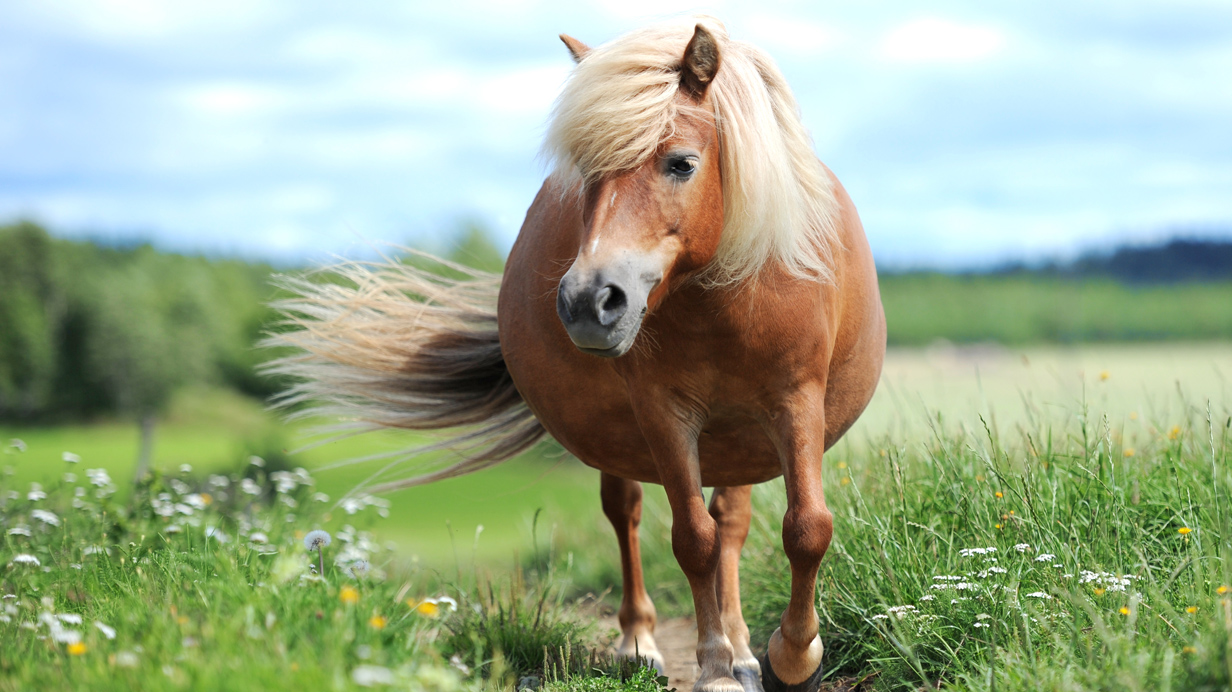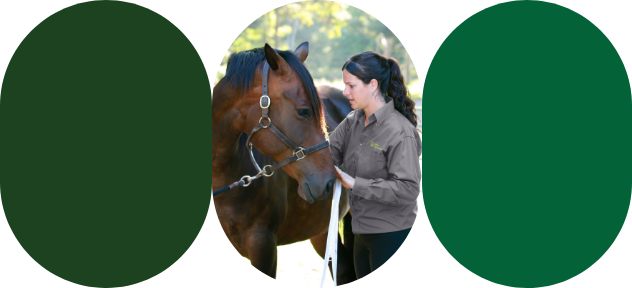What to do if your horse is overweight
Maintaining adequate body condition is essential for the health of horses. Here is a brief explanation of what can lead to obesity and some practical tips to help your horse lose weight.
The causes of excess weight
In simple terms, overweight and obesity are caused by the accumulation of fat as a direct result of consuming many more calories than the body uses. A horse is considered overweight when its body condition score is greater than 6/9, and obese when its body condition score is greater than 8/9.
The main sources of calories (also known as energy) for horses are fibre, fat, starch, and sugars. Therefore, hay, pasture, complete feed, beet pulp, alfalfa, soybean hulls, soybean oil, oats, barley, corn, soybeans, molasses, etc. can all contribute to excess weight in horses.
Sources of energy use
Firstly, horses use the calories from the above feeds in a number of ways. Their bodies constantly use calories for all of their physiological functions such as digestion, breathing, heart rate maintenance, and body temperature control. This is known as basal metabolism.
Some horses, known as easy keepers, have a very slow metabolism and require few calories to perform these functions. Other horses, known as hard keepers, have a very fast metabolism and use many more calories to maintain the same vital functions.
Secondly, horses burn calories during all voluntary and required physical activities such as training, turn outs, transport, and playing with their peers. Calories are also burned during the gestation and lactation periods of broodmares, the growth period of foals, and the breeding period of stallions. Horses living outdoors also use much more energy to acclimatize to changing temperatures, wind, rain, and soil conditions.
And—not to be overlooked—some horses use a great deal of energy when they are under stress and constantly pacing around their stalls or paddocks.
Six tips to help your horse lose weight
The key to weight loss in horses is to control the amount of feed that they eat and increase the number of situations in which they use energy. Physical activity helps horses lose weight and increases their basal metabolic rate, so that they burn more calories at rest.
1- Choose the right feed
Choose slightly more mature first-cut hay, which will meet your horse’s fibre requirements without too many calories, compared to second- or third-cut hay. If your horse grazes, choose the least rich pasture and keep the shelter and water source far away to encourage regular exercise.
2- Meet your horse’s minimum requirements
Forage is essential for your horse’s digestive and mental health. Horses should generally eat at least 2% of their weight in forage per day (dry matter basis). However, you can feed your horse slightly less than this to promote weight loss if a veterinarian or agronomist recommends it and your horse is monitored regularly.
3- Break up your horse’s daily hay ration into several meals
This will ensure regular feeding, reduce the stress associated with feed restriction, and prevent digestive problems such as gastric ulcers through the regular production of saliva, which contains bicarbonates that are essential for controlling stomach acidity. If it is not possible to divide your horse’s hay ration into several meals a day, it may be worth considering serving the hay in a net or slow feeder to slow down your horse’s feeding and spread it over a good part of the day.
4- Choose low-calorie feeds
Just as it is important to choose the right forage, it is also important to remove some feeds from your horse’s diet if you want to help it lose weight. This is the case with fats and grain, which are high in calories. Obese horses, whether exercising or not, do not really need any grain at all. A complete vitamin and mineral supplement, combined with your horse’s forage, will be sufficient to meet its nutritional requirements.
5- Focus on physical activity
Although exercising a horse requires a greater investment of time and energy from the owner, sometimes it is the only way to get a horse to lose weight. Horses with slow metabolisms, or those suffering from conditions such as equine metabolic syndrome, will often not lose weight even with a well-controlled diet unless exercise becomes part of their routine. Horses should exercise regularly, and the intensity should be appropriate to their physical condition.
6- Have your horse monitored by a veterinarian and an agronomist
These professionals will ensure that weight loss is carried out properly. A veterinarian may also be able to prescribe appropriate medication or treatments if the obesity is due to a medical condition or special circumstances.


